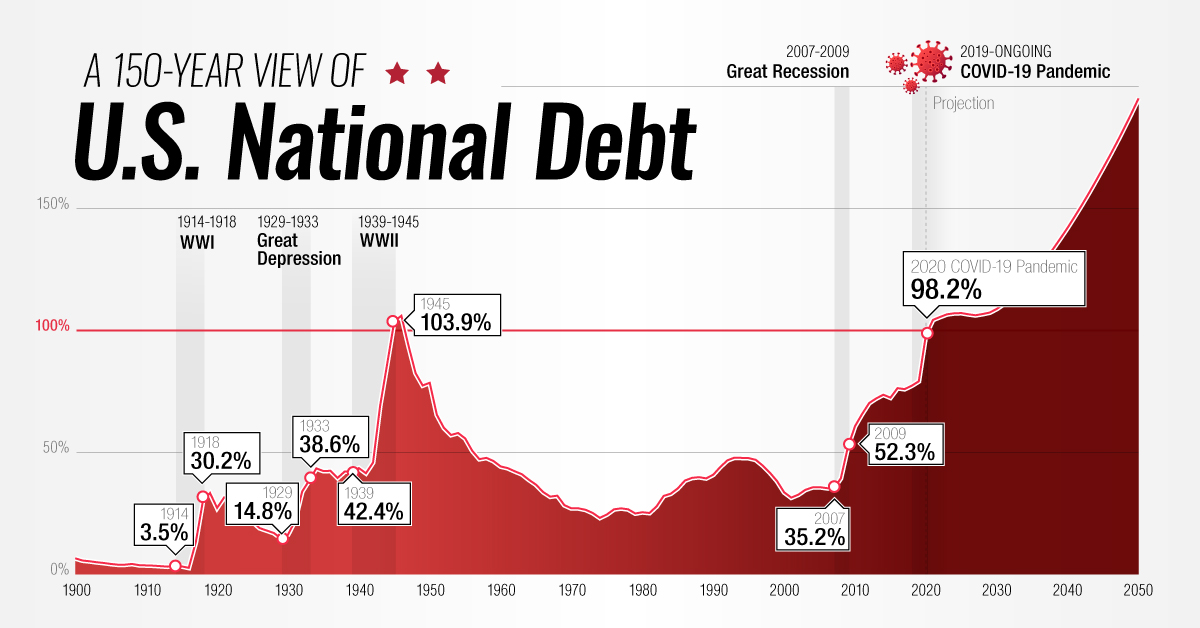According to esteemed finance professor Jeremy Siegel from Wharton, the notion of the US government defaulting on its debt is unequivocally out of the question.
In his recent thought-provoking commentary for WisdomTree, Siegel emphatically declared that there is absolutely zero chance that the debt issue will remain unresolved.
While acknowledging the possibility of political posturing and heated debates leading up to critical deadlines, Siegel firmly believes that a solution will be reached.
The ongoing debates surrounding the lifting of the country’s $31 trillion borrowing limit have undoubtedly caused a stir among US lawmakers.
Discussions on the debt ceiling persisted even after hitting an impasse between President Joe Biden and Speaker of the House Kevin McCarthy. The consequences of failing to reach an agreement are grave, as the United States could potentially default on its debt obligations.

To add to the mounting pressure, Treasury Secretary Janet Yellen has reiterated the urgent need for Congress to raise the national borrowing limit before the impending June 1 deadline.
Yellen expressed concerns that, without timely action, the government’s financial resources may run dry before reaching June 15. However, despite these critical issues and looming deadlines, Siegel remains resolute in his belief that the debt issue will be successfully resolved.
Siegel astutely notes that while the stock market is subject to various concerns beyond the realm of US politics, the “debt-ceiling saga” continues to dominate investors’ thoughts.
Last week’s market activity seemed to pivot on the prospects of a resolution to the debt ceiling talks. Siegel observed that short sellers in the market, wary of unexpected positive spikes resulting from breakthrough headlines, approached their strategies cautiously.
Jeremy Siegel Rejects Possibility of US Debt Default
A potential US government default on its debt would have wide-ranging impacts across the global economy.
The consequences would be severe and could lead to significant turmoil in financial markets. Investor confidence would wane, causing heightened volatility and sharp declines in stock prices.
The uncertainty surrounding US Treasury bonds, traditionally considered a safe haven, would result in increased borrowing costs for the government, businesses, and consumers. This could stifle economic growth and hamper investment and expansion plans.
The ensuing market instability would have a domino effect, affecting pension funds, mutual funds, and other investment vehicles that hold US government bonds, potentially eroding the value of these assets and impacting the retirement savings of millions of people.
The repercussions of a US debt default would extend beyond financial markets. The US dollar, as the world’s reserve currency, would face severe consequences. A default would erode confidence in the US dollar’s stability, potentially leading to a depreciation in its value.

This would have implications for global trade and could trigger currency fluctuations, impacting export competitiveness and import costs for businesses around the world. It would also affect international investors’ appetite for US assets, leading to capital outflows and further destabilizing financial markets.
The US government’s ability to meet its obligations would be called into question, resulting in a loss of credibility and trust in its fiscal management.
This would have long-term implications for the country’s borrowing costs. Lenders would demand higher interest rates to compensate for the increased risk associated with lending to the US government, making it more expensive for the government to finance its operations.
This, in turn, could lead to higher interest rates for mortgages, auto loans, and other forms of consumer credit, affecting the purchasing power of households and potentially dampening economic activity.
Siegel’s incisive analysis provides much-needed reassurance to investors and market participants who may have experienced trepidation about the potential consequences of a US debt default.
His resolute stance implies that, despite the current impasse and the grandstanding exhibited by politicians, the US government will ultimately find a way to navigate through the debt issue and prevent a catastrophic default.
However, it is imperative to vigilantly monitor ongoing developments and closely analyze the actions taken by policymakers to ensure a timely and effective resolution to this pressing matter.











